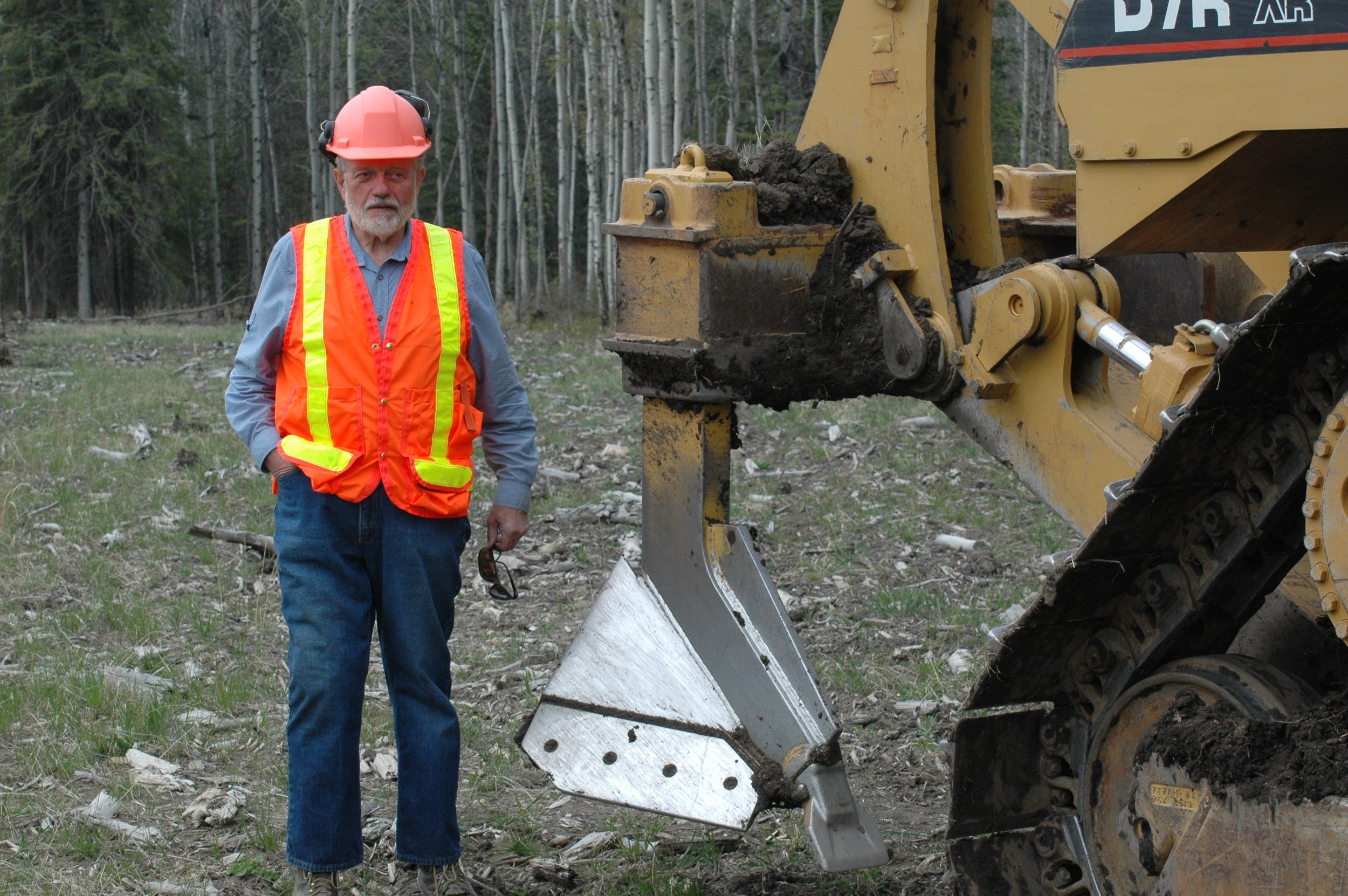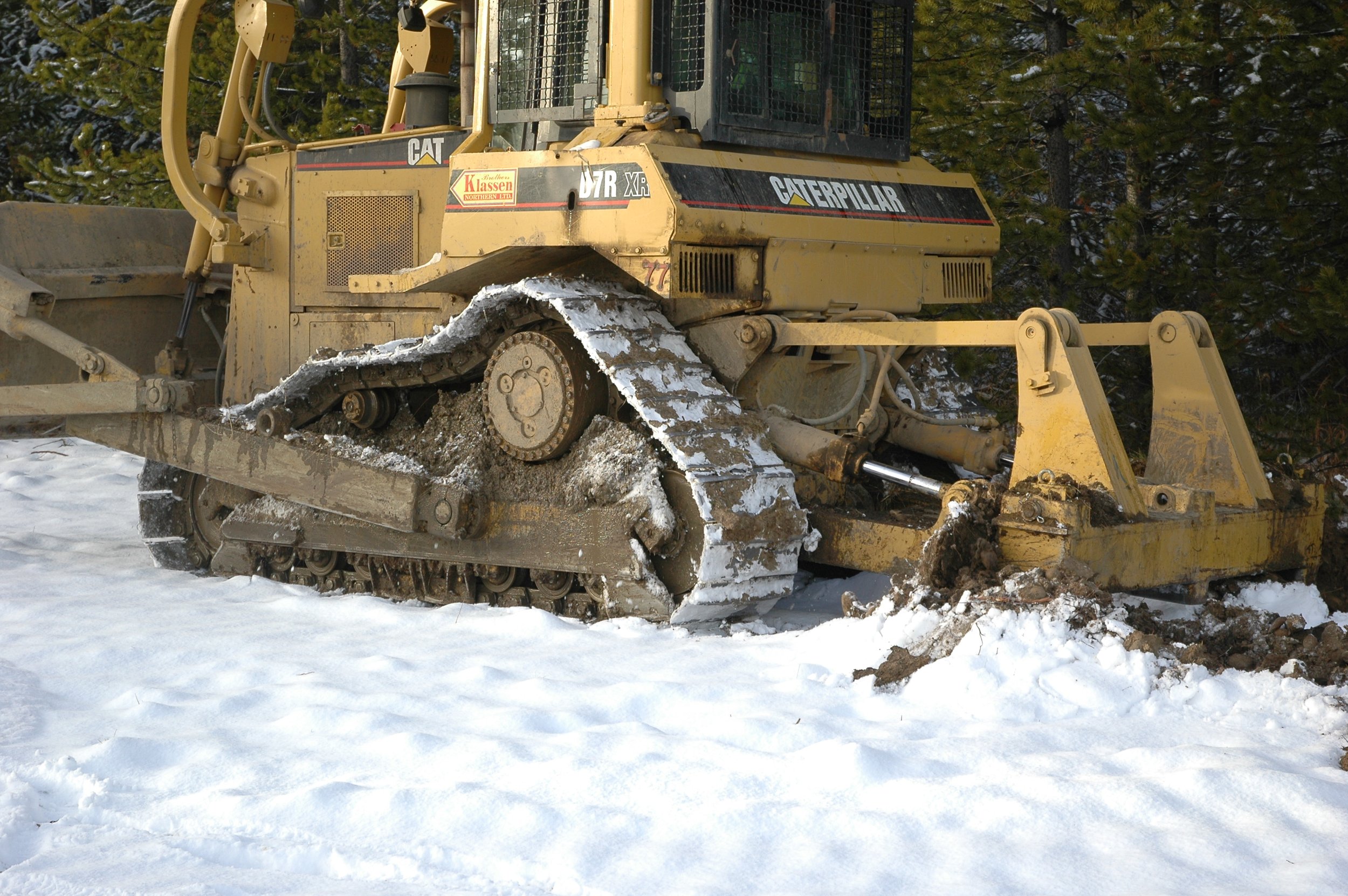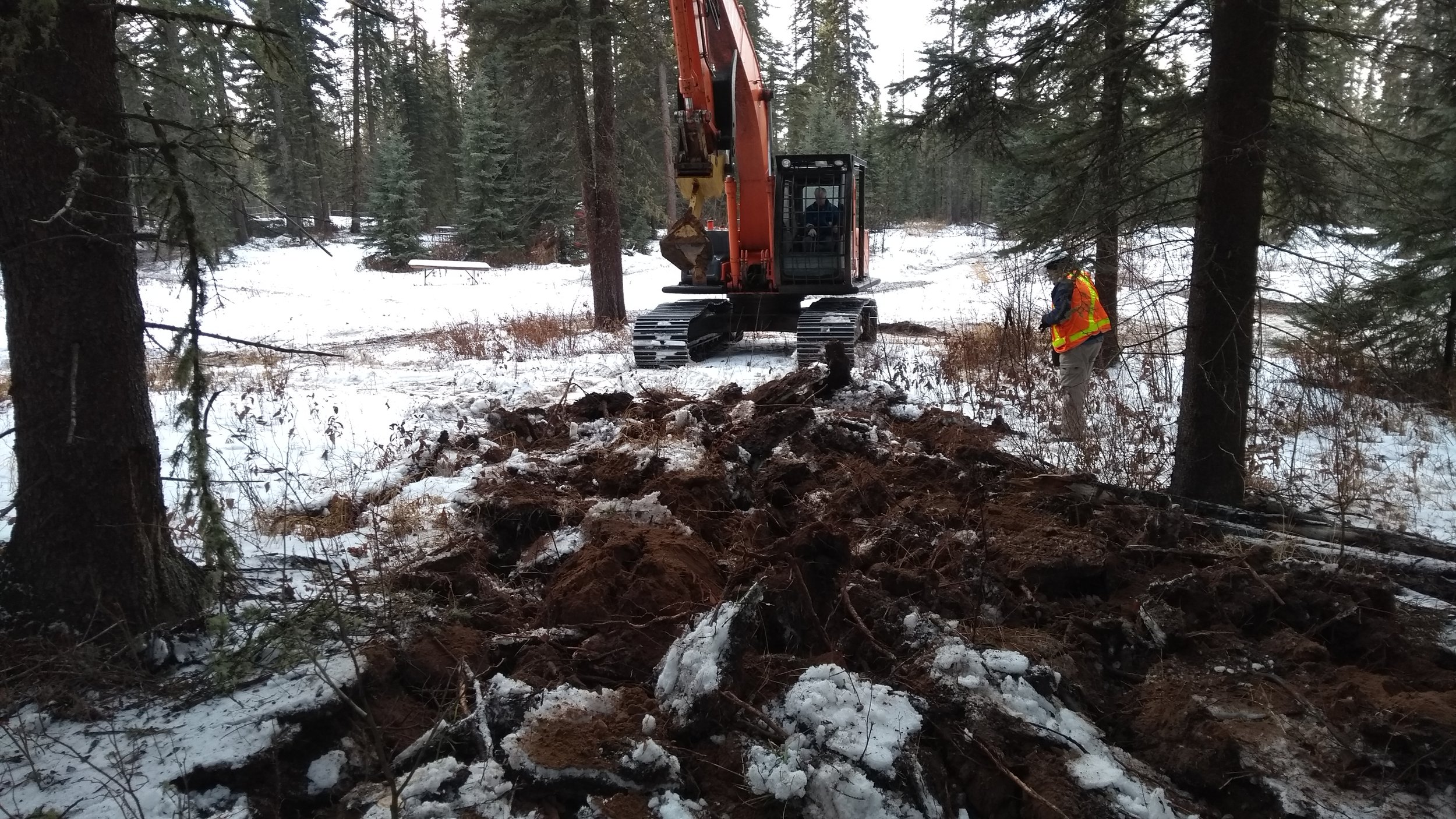RipPlow Implement
Project Abstract
Unused temporary access roads and seismic lines built by the forestry and/or energy sectors for resource extraction which have not returned to their original vegetative cover causes atypical forest fragmentation. This fragmentation can leave the forest broken into numerous smaller patches, which can isolate populations of wildlife, reduce the amount of livable habitat for wildlife with wide natural ranges, and increase predation as predators travel more easily along these exposed areas. These access corridors were constructed by equipment smoothing the soil into temporary roads, and many were likely compacted during use. As a result, these corridors are having many unanticipated ecological consequences which limits their potential to reforest naturally.
The ecological consequences of open patches and corridors, can persist for many decades and probably need to be considered permanent if the soil is not effectively restored to support reforestation efforts and sustain natural regeneration in the long term, such as following a wildfire. Unfortunately, most soils do not naturally restore themselves due to poor soil quality and a lack of diversity of micro-sites. A seldom considered issue is the surrounding undisturbed forest may have surface roots removing water and nutrients from the surface soil of baren corridors which can also prevent the regeneration and growth of young trees on nonforested lines. Deep soil tillage can restore soil quality and initially limit competition from the surrounding forest but it must be paired with appropriate reforestation strategies to successfully restore a natural forest vegetation on these areas.
To address these challenges, the RipPlow was created as a tillage implement for dozers and more recently excavators. When used, the implement can improve soil quality, create needed microsites, reduce access to linear disturbances, enable impacted sites to grow a resilient forest cover, and regenerate naturally if the area is burned in a wildfire in the future., Pairing this tool with the appropriate reforestation practices can greatly improve the odds of successful restoration, and the resiliency of forest land in the future.
Dave with a RipPlow mounted in the outside pocket of the toolbar of a medium-sized dozer.
The RipPlow was specifically designed to overcome the limitations of using ripper shanks and winged subsoilers on dozers which generally only loosen a small volume of surface soil near the shank. Ripper shanks seldom make more that a narrow slit in the subsoil when it is moist and/or severely compacted. In these situations, the soil will deform around the shank without fracturing the soil. Therefore, the depth at which a ripper shank penetrates the soil is not a reliable measure of its effectiveness as a tillage implement. Winged subsoilers are seldom an effective alternative tillage implement, particularly in compacted finer textured soils. Their most severe limitation is that soil will deform around the wing and the shank, and generally leave a tunnel-like void through the subsoil.
In contrast, RipPlows create greater multi-directional shear stresses in the subsoil, which breaks the subsoil upward, forward, and outward. As a result, these stresses are able to create a wide range of clods sizes throughout the plowed layer. Over winter, weathering of the clods will break them down more. The fracturing of clods is also enhanced by their faster freezing at depth. In the boreal forests of Alberta, the freezing of clods can fracture large clods into small pieces after only one winter.
Operation of the RipPlow
Winter Plowing
Plowing can be done in the winter. Snow insulates the soil and helps to slow freezing. However, the dozer/excavator needs good traction (i.e., ice lugs and/or snow removal may be required to improve traction).
Plowing
The site was plowed diagonally to direct drainage to the lower upper left corner of the photo. The access road was also plowed.
Plowing
A second parallel and overlapping pass is done to ensure effective tillage of soil cross the entire site. Nearly a meter of loose soil is created when operated at this dept. The surface of the tilled soil is increased by an average of 15 cm. The tillage increases porosity, permeability, water retention, and aeration while minimizing the risk of erosion. In these situations, the surface soil can remain elevated by 4 to 5 cm for several years and contributes to a sustained improvement in the hydrologic function of the soil.
Plowing
Roots from surrounding trees can grow into the surface soil of less compacted seismic lines preventing new trees from establishing. The RipPlow breaks these roots giving seedlings a better chance of survival in the plowed soil.
Restoration
After plowing, lodge pine were planted on this wellsite. Seeded grasses and winter snow can flatten lodgepole pine seedlings and permanently deform the stem. Flattened seedlings and seedlings competing with grass have a reduced chance of survival which can cause reforestation efforts to fail (foreground).
Restoration
Comparison of plowed and unplowed ground after 12 years. Lodgepole pine was planted on either side of the unplowed strip. Tree planters did not attempt to plant the unplowed strip because the soil was severely compacted. Some natural regeneration of spruce, aspen and poplar also occurred on the plowed soil but only an occasional woody shrub was able to establish on the unplowed strip.
RipPlow at the Boreal Wetland Centre
The RipPlow implement was demonstrated at the Boreal Wetland Centre to provide context to the public on how the practice would be beneficial for wider adoption by industry.
Directing Equipment
Site is tilled using an excavator RipPlow. Roots of adjacent trees were severed in the process.
Completed Tillage
David H. McNabb, creator of the RipPlow, poses next to completed tillage
Completed Tillage
Elevated microsites created in a forest opening with an excavator RipPlow. Plowing done in 2018
About Forest Soil Science Ltd. (FSL)
Established in 2004, FSL is a one-person company providing services to the forestry and energy sectors. They aim to provide expertise in applied and operational research for machine-soil-traction dynamics, their environmental consequences, and physical restoration of soil on industrial sites.
Previous projects covered soil-site-climate effects on reforestation and forest projectivity, soil compactability, the ecological consequences of machine trafficking of soil, and the development and testing of new implements and practices for the deep tillage of severely compacted soil on industrial sites.
Current research includes exploring the shear strength of unsaturated soils and predicting the compactability of soil when building roads as well as manufacturing and selling RipPlow implements and training practitioners in their use.
Dave McNabb has a BScF in Forest Management, a MSc. in Forest Soils, and a PhD in Soil Science with a minor in soil engineering. He has 50 years of academic, government, and industrial research and technology transfer experience in areas of forest soils and productivity, machine/soil interaction, soil restoration, and reforestation.
Contact:
David H. McNabb, PhD, RPF(AB)
ForestSoil Science Ltd.
Edmonton, Alberta
dhmcnabb@telus.net
780-469-7006










